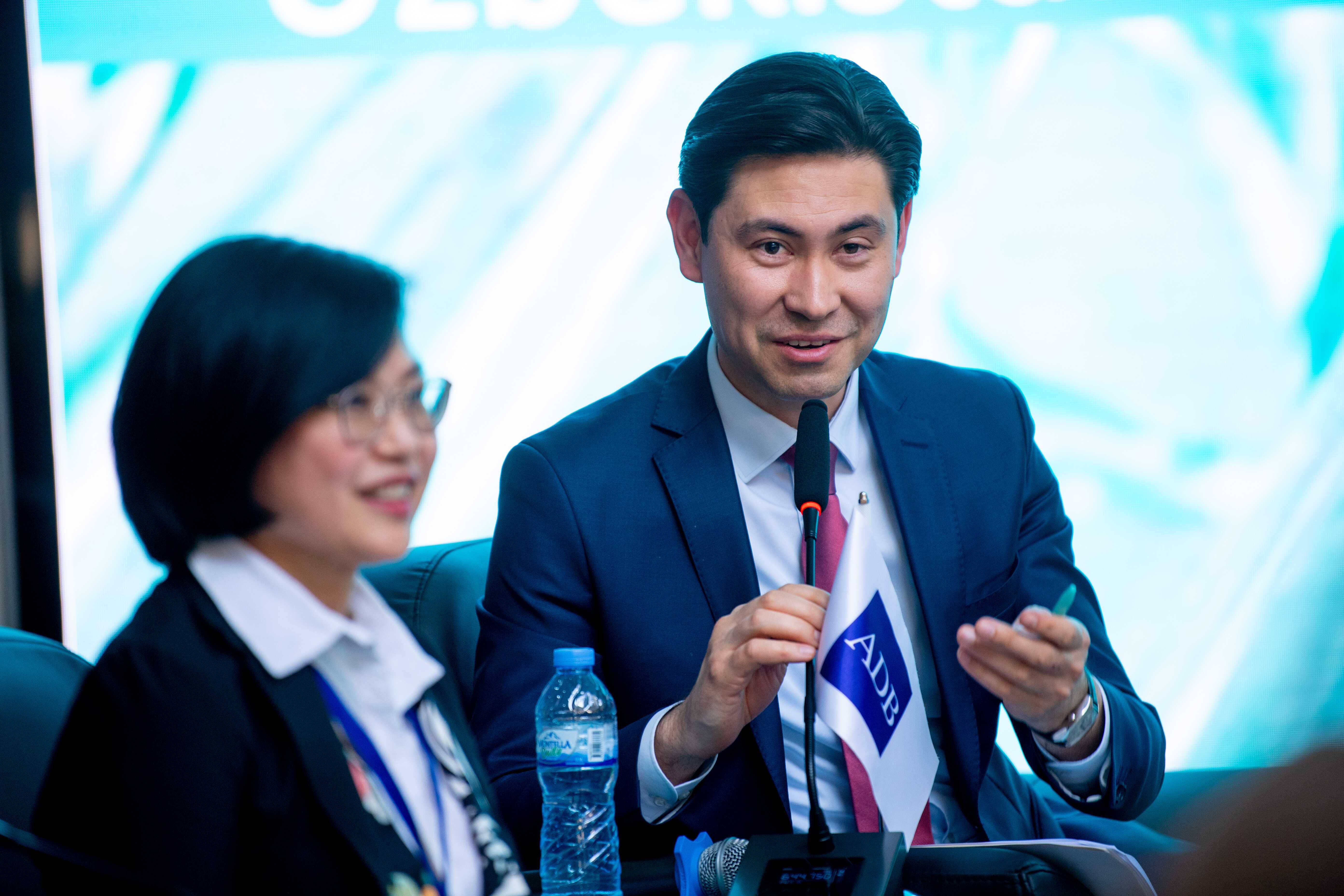On April 11, New Uzbekistan University hosted a special presentation of the Asian Development Outlook (ADO) 2025 report, organized by the Uzbekistan Resident Mission of the Asian Development Bank (ADB). The event focused on key economic trends and forecasts for Uzbekistan and the broader region.
The Asian Development Outlook is ADB’s flagship economic publication, offering comprehensive analysis of macroeconomic developments and trends across the Asia-Pacific region. The 2025 edition of the report places special emphasis on regional cooperation and its impact on sustainable growth.
The event was officially opened by Dr. Azizbek Marakhimov, Vice-Rector of New Uzbekistan University, and Ms. Kanokpan Lao-Araya, ADB Country Director for Uzbekistan. In their opening remarks, both emphasized the importance of informed policymaking, evidence-based planning, and the need for enhanced cooperation between development institutions and academic communities.
Following the opening, ADB Regional Cooperation Specialist Begzod Jalilov delivered a detailed presentation highlighting the role of regional collaboration in promoting inclusive economic development, improving infrastructure, and fostering innovation across Central Asia and the Asia-Pacific region. He also provided insights into Uzbekistan’s recent economic performance and discussed prospects for growth in key sectors.
The event concluded with a lively Q&A session, allowing students, faculty, and invited guests to engage directly with ADB experts on current economic challenges and opportunities for Uzbekistan and the region.
This year marks the 30th anniversary of partnership between the Republic of Uzbekistan and the Asian Development Bank. Since 1995, ADB has provided over $14.5 billion in loans, grants, and technical assistance to support the country’s economic reforms, infrastructure development, and sustainable growth efforts.
By hosting such high-level discussions, New Uzbekistan University reaffirms its commitment to exposing students to global perspectives and connecting academia with real-world development challenges.
 O'zbekcha
O'zbekcha
 Русский
Русский
 English
English







